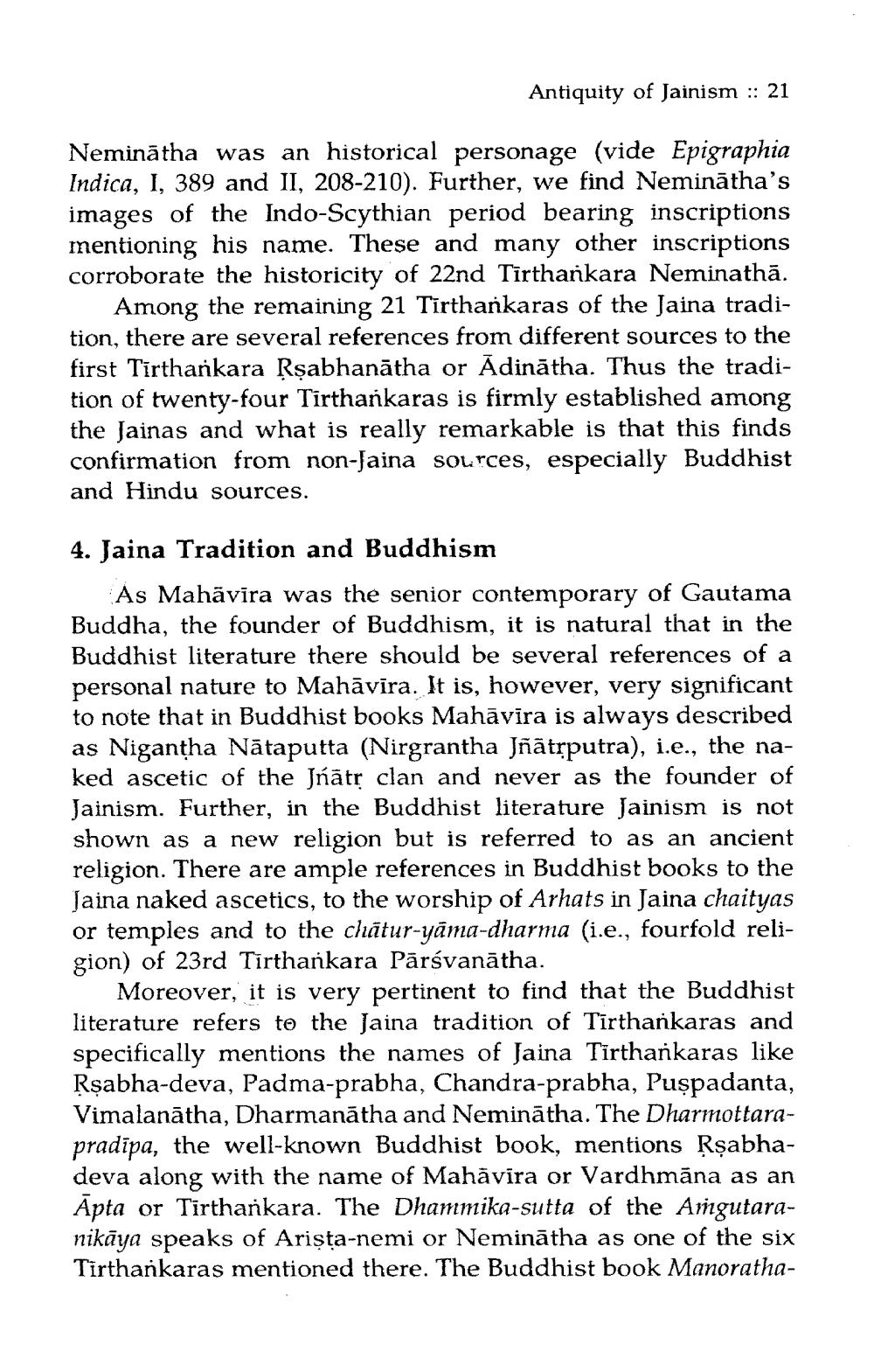________________
Antiquity of Jainism :: 21
Neminātha was an historical personage (vide Epigraphia Indica, I, 389 and II, 208-210). Further, we find Neminātha's images of the Indo-Scythian period bearing inscriptions mentioning his name. These and many other inscriptions corroborate the historicity of 22nd Tirthankara Neminathā.
Among the remaining 21 Tīrthankaras of the Jaina tradition, there are several references from different sources to the first Tirtharikara Rşabhanātha or Adinātha. Thus the tradition of twenty-four Tirthankaras is firmly established among the Jainas and what is really remarkable is that this finds confirmation from non-faina sources, especially Buddhist and Hindu sources.
4. Jaina Tradition and Buddhism
As Mahāvīra was the senior contemporary of Gautama Buddha, the founder of Buddhism, it is natural that in the Buddhist literature there should be several references of a personal nature to Mahāvīra. It is, however, very significant to note that in Buddhist books Mahāvira is always described as Nigantha Nātaputta (Nirgrantha Jñātņputra), i.e., the naked ascetic of the Jńātr clan and never as the founder of Jainism. Further, in the Buddhist literature Jainism is not shown as a new religion but is referred to as an ancient religion. There are ample references in Buddhist books to the Jaina naked ascetics, to the worship of Arhats in Jaina chaityas or temples and to the châtur-yāma-dharma (i.e., fourfold religion) of 23rd Tirthankara Pārsvanātha.
Moreover, it is very pertinent to find that the Buddhist literature refers to the Jaina tradition of Tīrthankaras and specifically mentions the names of Jaina Tīrtharkaras like Rsabha-deva, Padma-prabha. Chandra-prabha, Puspadanta, Vimalanātha, Dharmanātha and Neminātha. The Dharmottarapradipa, the well-known Buddhist book, mentions Rşabhadeva along with the name of Mahāvīra or Vardhmāna as an Āpta or Tirtharkara. The Dhammika-sutta of the Angutaranikāya speaks of Arista-nemi or Neminātha as one of the six Tirthankaras mentioned there. The Buddhist book Manoratha




